Proms Chamber Music 7: Benjamin Grosvenor/Prom 60: Driver, RPO, Dutoit | reviews, news & interviews
Proms Chamber Music 7: Benjamin Grosvenor/Prom 60: Driver, RPO, Dutoit
Proms Chamber Music 7: Benjamin Grosvenor/Prom 60: Driver, RPO, Dutoit
Rainbow colours with a cooling shower or two in Proms showpiece time
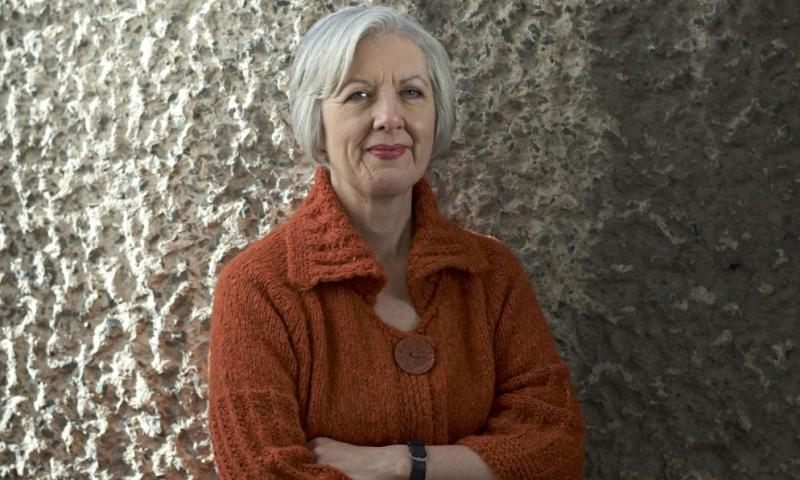
After the enervating excesses of Salome and Elektra at the weekend, the abundance of notes at the Proms continued in a piano recital and an orchestral showstopper, but this time with built-in air conditioning. After all, both 22-year-old Benjamin Grosvenor and septuagenarian Charles Dutoit are absolutely in control of the colours they make, very occasionally too much so.
The Grosvenor happening (***) was a first in several respects for me: first time, despite all the best intentions, at a Cadogan lunchtime Prom, and first live hearing of a solo recital from the pianist already touted as a National Treasure (Private Eye will no doubt be on the watch). Does he live up to the hype? Well, he’s good, no doubt about it, technically breathtaking in conjuring up a full, stampeding orchestra as Liszt no doubt intended in his free transcription of Gounod’s Faust Waltz and velocity-thundering the terrific encore, a Dohnányi Etude. But to start with Chopin’s First Ballade meant going deeper, and while there were textures and inner lines here I’ve never heard before, neither the angriest flight nor the freest fantasy struck me as lit from within by pure imagination.
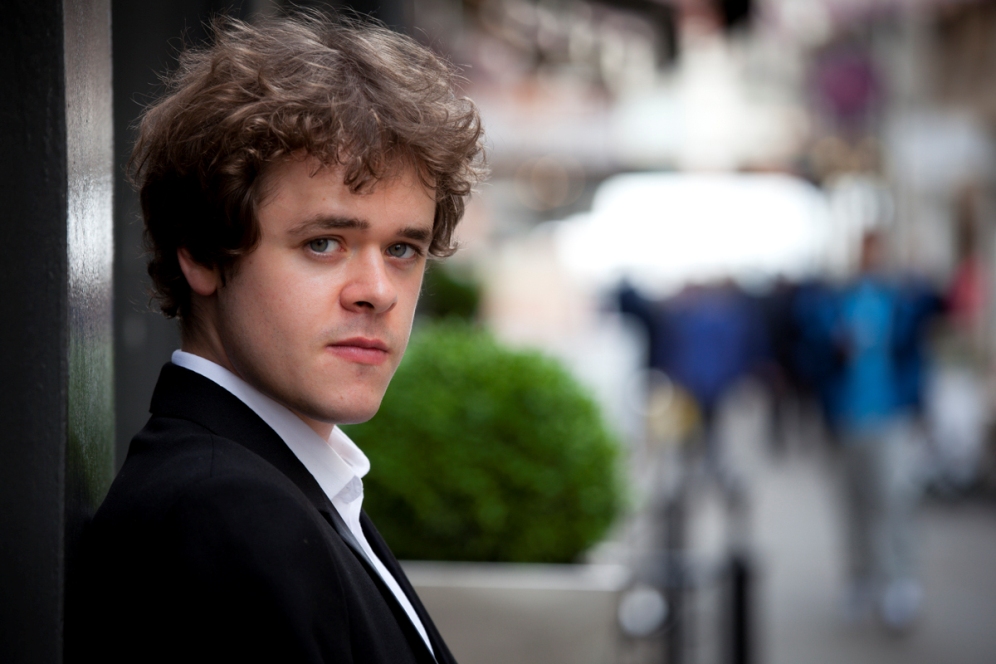 Three pieces by the Catalan composer Mompou were small impressionistic beer. The first was beautifully rounded off, the mark of a true artist; but since we get so little of the far superior Albéniz in concert, it seemed like an opportunity wasted. Ravel’s Valses nobles et sentimentales seemed stylistically wrong to me: no sense of exhilarating upbeats or waltz-rubato, the supernatural hauteur of the big chords or the haunting of the half-lights. Grosvenor (pictured above by operaomnia.co.uk) doesn’t shred the Ravel filter on Johann Strauss like George Benjamin, busting a piano string or two, at Aldeburgh in the early 1980s or Khatia Buniatishvili in her do-I-hear-a-waltz-at-all massacre of the piano-transcription La Valse, but I wouldn’t rush to hear him in this composer again.
Three pieces by the Catalan composer Mompou were small impressionistic beer. The first was beautifully rounded off, the mark of a true artist; but since we get so little of the far superior Albéniz in concert, it seemed like an opportunity wasted. Ravel’s Valses nobles et sentimentales seemed stylistically wrong to me: no sense of exhilarating upbeats or waltz-rubato, the supernatural hauteur of the big chords or the haunting of the half-lights. Grosvenor (pictured above by operaomnia.co.uk) doesn’t shred the Ravel filter on Johann Strauss like George Benjamin, busting a piano string or two, at Aldeburgh in the early 1980s or Khatia Buniatishvili in her do-I-hear-a-waltz-at-all massacre of the piano-transcription La Valse, but I wouldn’t rush to hear him in this composer again.
Suddenly, everything lit up – with no comparisons to make – in his world premiere performance of Judith Weir’s Day Break Shadows Flee, much the best of the BBC commissions and new, or newish, works I’ve heard at the Proms this season. This is a fine signing-in by Weir as Master of the Queen's Music, a role incidentally in which she might achieve much of social value. Passionately and lucidly tonal, the work has the kind of blinding light you hear in some of Britten’s most luminous pieces – though it’s probably coincidence that the refrain, a pentatonic rising figure, is the same as Billy Budd’s salute to his Captain, “Starry Vere, God bless you!”. The tension between slow, sustained chords and the blue-sky thinking veers more to Tippett, but the 10-minute piece has a purpose and an identity very much its own, an especially clamorous personality owing to Grosvenor’s sharp-focus tintinnabulations. Proof enough, too, that he has plenty of time to cultivate the depths if he doesn’t turn into a flashy virtuoso like Mark-André Hamelin. The essential imagination, though, I’m still not sure about.
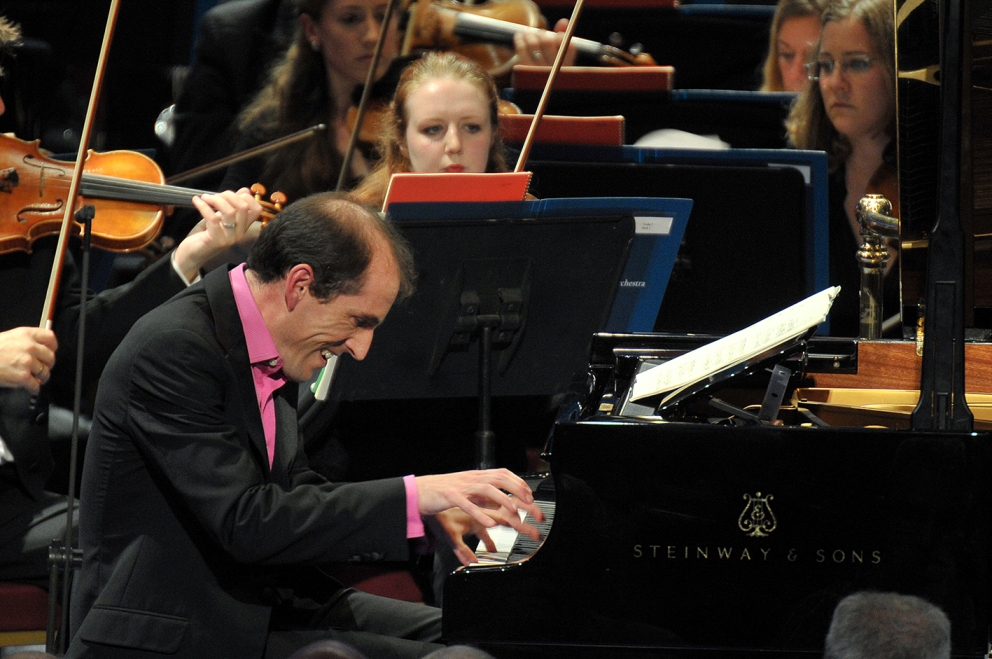 That we have an abundance of fine British pianists, many of them far less feted and deserving better, was self-effacingly proved by Danny Driver (pictured right last night by Chris Christodoulou) in the rarity of the evening Prom, the original version of Walton’s Sinfonia concertante. No depths here, certainly, and a far more self-conscious homage to role models than Weir’s piece: the young Walton of the 1920s here favoured Poulenc and Prokofiev, virtually cribbing a theme from the finale of the latter’s Second Piano Concerto to spill over from the chameleonic first movement into the second. There are flashes of the individual Waltonian dash we know and love, but what the piece amounts to I’m not sure: music, perhaps, that doesn’t cry out to exist but provides plenty of vivacious pleasures, especially in this clear and charged performance.
That we have an abundance of fine British pianists, many of them far less feted and deserving better, was self-effacingly proved by Danny Driver (pictured right last night by Chris Christodoulou) in the rarity of the evening Prom, the original version of Walton’s Sinfonia concertante. No depths here, certainly, and a far more self-conscious homage to role models than Weir’s piece: the young Walton of the 1920s here favoured Poulenc and Prokofiev, virtually cribbing a theme from the finale of the latter’s Second Piano Concerto to spill over from the chameleonic first movement into the second. There are flashes of the individual Waltonian dash we know and love, but what the piece amounts to I’m not sure: music, perhaps, that doesn’t cry out to exist but provides plenty of vivacious pleasures, especially in this clear and charged performance.
The rest of the programme was of a Roman piece. From the first sally of Berlioz’s Roman Carnival Overture the Royal Philharmonic sounded like an orchestra transformed to international calibre under Dutoit’s meticulous baton (****). He underlined every rhythmic and textural quirk of Berlioz’s restlessly individual personality, even if I couldn’t quite see the human bustle of the Mardi Gras in the scene from that testosterone-laden opera Benvenuto Cellini which the music adapts.
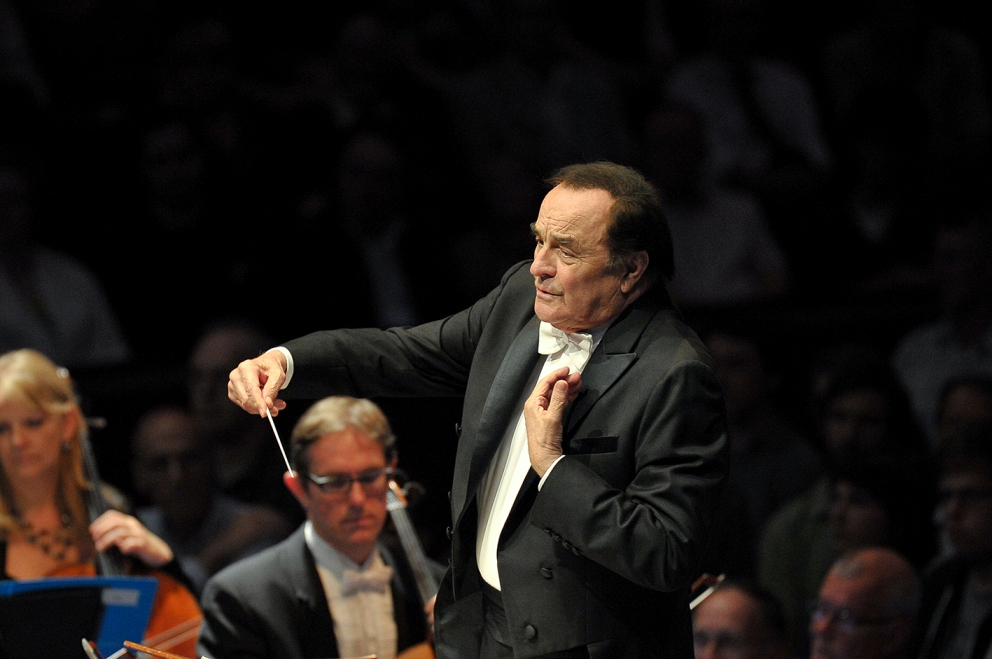 Given such sophisticated colours, it was already clear that Respighi’s three orchestrally resourceful sets of Roman sketches, so much more than mere picture postcards, were never going to sag or pall. Dutoit (pictured left last night) wisely began with the last of the triptych, Roman Festivals, tending to the gigantism of the early Mussolini years. We’d already had a whiff of that earlier this Proms season in the superb Borusan Istanbul Philharmonic’s championship of the suite from the ballet-extravaganza Belkis, Queen of Sheba.
Given such sophisticated colours, it was already clear that Respighi’s three orchestrally resourceful sets of Roman sketches, so much more than mere picture postcards, were never going to sag or pall. Dutoit (pictured left last night) wisely began with the last of the triptych, Roman Festivals, tending to the gigantism of the early Mussolini years. We’d already had a whiff of that earlier this Proms season in the superb Borusan Istanbul Philharmonic’s championship of the suite from the ballet-extravaganza Belkis, Queen of Sheba.
In this first sequence I’d have liked a little more of the Turkish orchestra’s passionate Technicolor from the RPO strings – when will British players really learn to unbend? – and a touch more abandon in the Piazza Navona at Epiphany. But despite the thrill of the three trumpets from on high heralding Colosseum death to the Christians at the start – we were in the right arena, in Panavision – and the crazy, when-shall-I-stop final gallimaufry, it was the layered poetry of the "October Festival" which captivated most. The late Calum (Malcolm) MacDonald, whose death this year came as such a shock, typically nailed it in the excellent programme notes as the "art of transition" turned into “a kind of cinematic 'dissolve'". The sleighbells and mandolin were a mere heightening of the atmosphere, no gaudy extras.
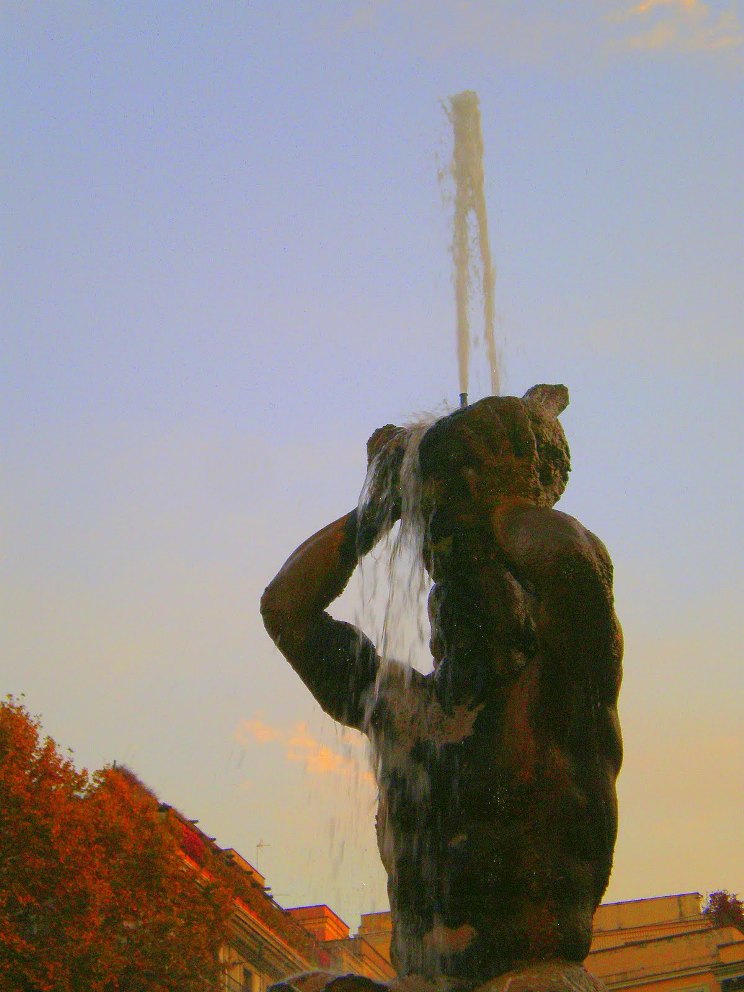 Fountains of Rome, framed by more pure poetry in Valle Giulia at dawn and the Villa Medici at sunset, spotlit the subtle and lovely RPO woodwind, all of a piece – and how young is that exceptional oboist, John Roberts? The horns had their heyday with their held note keeping the Piazza Barberini’s Triton and his conch (pictured right by the author) in the foreground, as brilliant a highlight as any and launched with all the theatrical timing of Puccini, before Dutoit gave an exceptionally broad welcome to the sea-cortege of the Trevi Fountain.
Fountains of Rome, framed by more pure poetry in Valle Giulia at dawn and the Villa Medici at sunset, spotlit the subtle and lovely RPO woodwind, all of a piece – and how young is that exceptional oboist, John Roberts? The horns had their heyday with their held note keeping the Piazza Barberini’s Triton and his conch (pictured right by the author) in the foreground, as brilliant a highlight as any and launched with all the theatrical timing of Puccini, before Dutoit gave an exceptionally broad welcome to the sea-cortege of the Trevi Fountain.
With more dramatic impetus, Dutoit came almost immediately out of the silence of Fountains’ exquisite vespers into the children’s games by the Pines of the Villa Borghese. More orchestral solos justified their place in the sun: the beautifully vibratoed bugle call outside the catacombs, the clarinet meditation on the Janiculum (Tim Lines, first among woodwind equals) capped only by a nightingale recording of perfect liquidity. The audience, and the trilling strings, held their breath. The love-music swooning in between justified its place as a kind of eleven-o-clock number in the sequence, while Respighi’s harmonically adventurous march-crescendo for the Roman cohorts on the Appian Way was the only possible conclusion: bring it all on, the Albert Hall organ – essential throughout the Respighi sequence – and the offstage trumpets contributing to a glorious noise that managed to be deafening even in this setting, but never shrill: Dutoit kept the depth in the sound throughout. Result? A stunner, naturally.
Share this article
The future of Arts Journalism
You can stop theartsdesk.com closing!
We urgently need financing to survive. Our fundraising drive has thus far raised £49,000 but we need to reach £100,000 or we will be forced to close. Please contribute here: https://gofund.me/c3f6033d
And if you can forward this information to anyone who might assist, we’d be grateful.

Subscribe to theartsdesk.com
Thank you for continuing to read our work on theartsdesk.com. For unlimited access to every article in its entirety, including our archive of more than 15,000 pieces, we're asking for £5 per month or £40 per year. We feel it's a very good deal, and hope you do too.
To take a subscription now simply click here.
And if you're looking for that extra gift for a friend or family member, why not treat them to a theartsdesk.com gift subscription?
more Classical music
 Bizet in 150th anniversary year: rich and rare French offerings from Palazzetto Bru Zane
Specialists in French romantic music unveil a treasure trove both live and on disc
Bizet in 150th anniversary year: rich and rare French offerings from Palazzetto Bru Zane
Specialists in French romantic music unveil a treasure trove both live and on disc
 Scottish Chamber Orchestra, Ibragimova, Queen’s Hall, Edinburgh review - rarities, novelties and drumrolls
A pity the SCO didn't pick a better showcase for a shining guest artist
Scottish Chamber Orchestra, Ibragimova, Queen’s Hall, Edinburgh review - rarities, novelties and drumrolls
A pity the SCO didn't pick a better showcase for a shining guest artist
 Kilsby, Parkes, Sinfonia of London, Wilson, Barbican review - string things zing and sing in expert hands
British masterpieces for strings plus other-worldly tenor and horn - and a muscular rarity
Kilsby, Parkes, Sinfonia of London, Wilson, Barbican review - string things zing and sing in expert hands
British masterpieces for strings plus other-worldly tenor and horn - and a muscular rarity
 From Historical to Hip-Hop, Classically Black Music Festival, Kings Place review - a cluster of impressive stars for the future
From quasi-Mozartian elegance to the gritty humour of a kitchen inspection
From Historical to Hip-Hop, Classically Black Music Festival, Kings Place review - a cluster of impressive stars for the future
From quasi-Mozartian elegance to the gritty humour of a kitchen inspection
 Shibe, LSO, Adès, Barbican review - gaudy and glorious new music alongside serene Sibelius
Adès’s passion makes persuasive case for the music he loves, both new and old
Shibe, LSO, Adès, Barbican review - gaudy and glorious new music alongside serene Sibelius
Adès’s passion makes persuasive case for the music he loves, both new and old
 Anja Mittermüller, Richard Fu, Wigmore Hall review - a glorious hall debut
The Austrian mezzo shines - at the age of 22
Anja Mittermüller, Richard Fu, Wigmore Hall review - a glorious hall debut
The Austrian mezzo shines - at the age of 22
 First Person: clarinettist Oliver Pashley on the new horizons of The Hermes Experiment's latest album
Compositions by members of this unusual quartet feature for the first time
First Person: clarinettist Oliver Pashley on the new horizons of The Hermes Experiment's latest album
Compositions by members of this unusual quartet feature for the first time
 Gesualdo Passione, Les Arts Florissants, Amala Dior Company, Barbican review - inspired collaboration excavates the music's humanity
At times it was like watching an anarchic religious procession
Gesualdo Passione, Les Arts Florissants, Amala Dior Company, Barbican review - inspired collaboration excavates the music's humanity
At times it was like watching an anarchic religious procession
 Classical CDs: Camels, concrete and cabaret
An influential American composer's 90th birthday box, plus British piano concertos and a father-and-son duo
Classical CDs: Camels, concrete and cabaret
An influential American composer's 90th birthday box, plus British piano concertos and a father-and-son duo
 Cockerham, Manchester Camerata, Sheen, Martin Harris Centre, Manchester review - re-enacting the dawn of modernism
Two UK premieres added to three miniatures from a seminal event of January 1914
Cockerham, Manchester Camerata, Sheen, Martin Harris Centre, Manchester review - re-enacting the dawn of modernism
Two UK premieres added to three miniatures from a seminal event of January 1914
 Kempf, Brno Philharmonic, Davies, Bridgewater Hall, Manchester review - European tradition meets American jazz
Bouncing Czechs enjoy their Gershwin and Brubeck alongside Janáček and Dvořák
Kempf, Brno Philharmonic, Davies, Bridgewater Hall, Manchester review - European tradition meets American jazz
Bouncing Czechs enjoy their Gershwin and Brubeck alongside Janáček and Dvořák
 Solomon, OAE, Butt, QEH review - daft Biblical whitewashing with great choruses
Even a top soprano and mezzo can’t make this Handel paean wholly convincing
Solomon, OAE, Butt, QEH review - daft Biblical whitewashing with great choruses
Even a top soprano and mezzo can’t make this Handel paean wholly convincing

Add comment